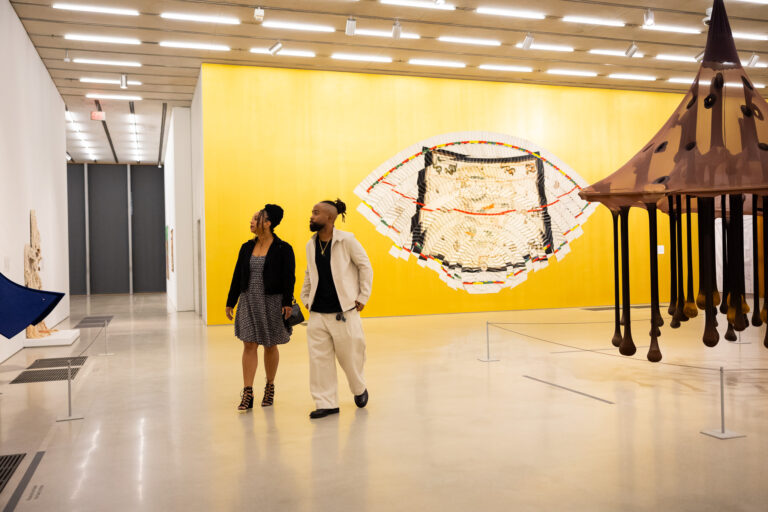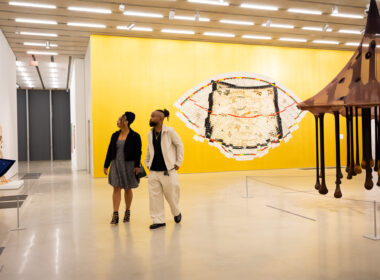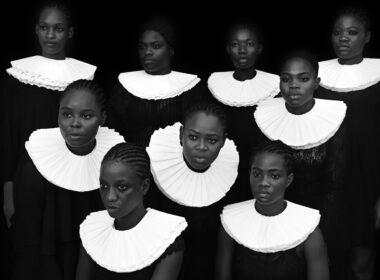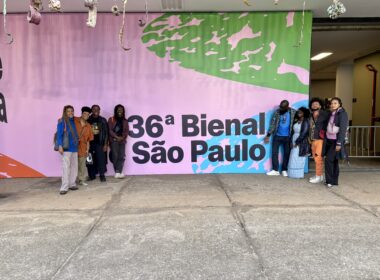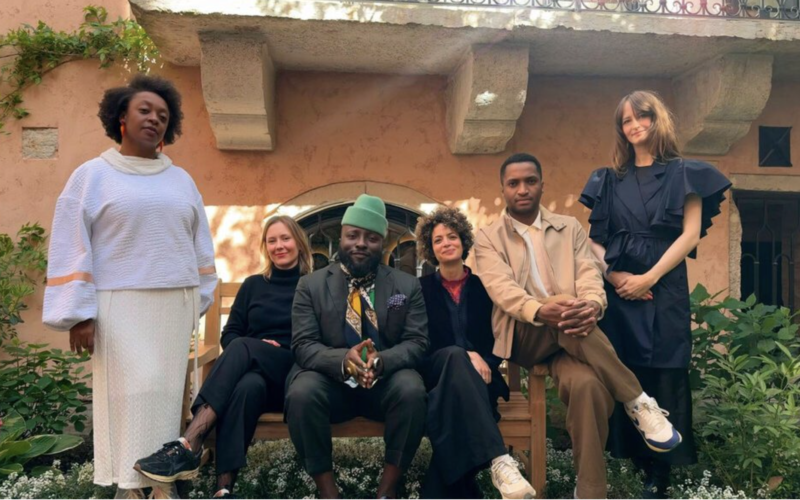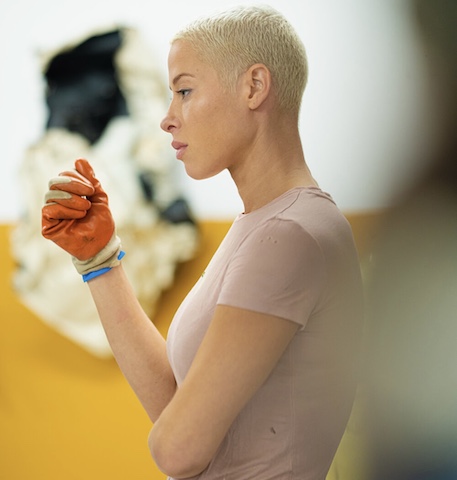Dear friends,
It’s been a week of good news with milestones far-reaching around the world. Stories abound from Sao Paulo on its much-anticipated biennial taking place in the fall of next year. And then there are prizes… prizes featuring some of the world’s favourite artists and writers.
I was most excited about the Dylan Prize being a fan of most of the finalists. While I may have been rooting for Ayòbámi Adébáyò for obvious reasons (I am Nigerian by the way and fond of her personally), I’m also pleased by the eventual winner. The Commonwealth Writer’s Prize for the African Region introduced me to a new writer and simply cannot wait to see more from the Mauritanian writer.
One of the joys of putting this newsletter together weekly is the exposure to new names – people around the world whose works draw you into new creative expressions. So, although summarized to emphasize the crux of the gist, I hope that this spurs you to explore and learn more.
Conceptual Team for the 36th Bienal de São Paulo Announced
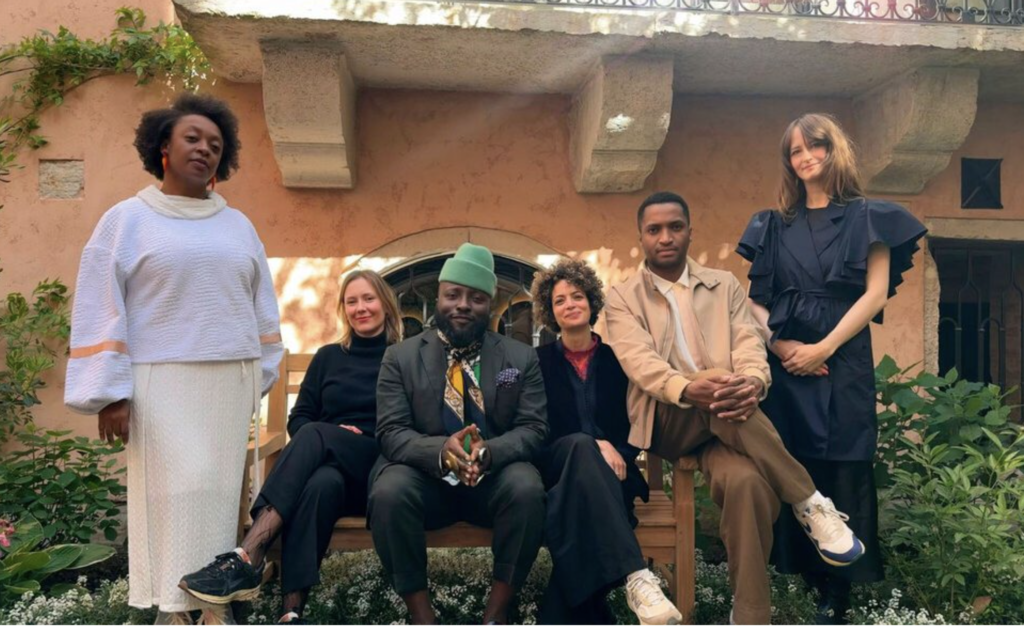
The Fundação Bienal de São Paulo and Bonaventure Soh Bejeng Ndikung have announced the team for the edition happening in fall 2025. With preparations underway, the conceptual team, set up by Bonaventure Soh Bejeng Ndikung, is composed of co-curators Alya Sebti, Anna Roberta Goetz and Thiago de Paula Souza, co-curator at large Keyna Eleison and strategy and communication advisor Henriette Gallus. The 36th São Paulo Biennial opens September 2025.
For curator Bonaventure Soh Bejeng Ndikung, the choice of the conceptual team is fundamental for a broader and more poetic vision of the project: “It is a privilege to embark on this journey for the 36th Bienal de São Paulo with this group of brilliant, respected and diligent colleagues from varying geographies and disciplines. What truly brings us together is the spirit of generosity, intellectual integrity, and justice towards one another and towards the task ahead of us, and most of all a deep love and respect for artists and their works. In terms of curatorial methodology, together with my colleagues, we will adopt the flight routes of migrating birds that criss-cross the four cardinal coordinates of the globe and through their sense of navigation, urge of displacement, sense of survival, overstanding of spaces and times, as well as their urgencies and agencies, we intend to engage in deep and wide research towards the 36th Bienal de São Paulo. While the team will grow in due course, it is my honor to already introduce this core conceptual team.”
Andrea Pinheiro, president of the Fundação Bienal de São Paulo, commented: “The Bienal de São Paulo is our country’s historical heritage. Translating the artistic and social concerns of today’s world into an exhibition is an enormous responsibility. I’m sure that the work of Bonaventure and his team will be of great importance to the history of the Bienal.”
Ndikung’s work is one to look forward to, as he is widely recognized for his contributions to contemporary art and cultural discourse. Ndikung’s efforts to decolonize art institutions and create platforms for underrepresented voices have had a significant impact on the art world, making him a key figure in discussions about the future of art and culture. His work spans curatorial practice, cultural management, writing, and advocacy, focusing consistently on decolonization, inclusivity, and social justice. Mr. Ndikung’s leadership roles at institutions like SAVVY Contemporary and HKW reflect his influential presence in shaping contemporary art discourse.
Meet the Finalists for 2024 ellipse Prize for Edition Dedicated to Benin
The 2024 selection committee of the ellipse Prize have presented 5 finalists of this fourth edition dedicated to emerging artists living in Benin and to Beninese living in the African continent.
The selected artists are Marcel Kpoho, Nella Aguessy, Nobel Koty, Océane-Maria Adjovi and Nauld Adjahuime.
This year, for the first time, the finalists will present their work at a unique collective exhibition at Maison Rouge, in Cotonou.
This hotel partner of this edition is renowned for its events highlighting the country’s artistic creation. This brand-new initiative reinforces the ellipse Prize’s local involvement in this step in Benin and emphasizes its growing commitment to the African continent.
On June 18, 2024, they will announce the winner of the ellipse Prize 2024, who will earn an exhibition at the international art fair AKAA – ALSO KNOWN AS AFRICA, scheduled to take place from October 18 to 20, 2024, as well as receive bespoke professional and mediatic support.
These 5 finalists were selected by an independent jury composed of contemporary art professionals, including specialists in the Beninese scene including Armelle Dakouo (Artistic director of AKAA and independent curator), Dominique Zinkpè (Beninese visual artist and President of the Centre, Abomey-Calavi), Céline Coyac Atindehou (Director of the Maison Rouge Hotel) and Lylly Houngnihin Executive director of Laboratorio Arts Contemporains.
Caleb Azumah Nelson Wins 2024 Dylan Thomas Prize with Small Worlds

Caleb Azumah Nelson, a British-Ghanaian writer, won the 2024 Dylan Thomas Prize for his novel “Small Worlds.” This award, given by Swansea University, is one of the top prizes for young writers and comes with £20,000 prize.
Nelson was chosen from six finalists, including A Spell of Good Things by Ayòbámi Adébáyò (Nigeria), The Glutton by K. Blakemore (England, UK), Bright Fear by Mary Jean Chan, (Hong Kong), Local Fires by Joshua Jones (Wales, UK) and Biography of X by Catherine Lacey (US)
The judging panel praised Small Worlds for its emotional depth and musical writing style. The novel, set over three summers in South London and Ghana, explores the lives of a father and son. The book was released in July 2023 and has been well-received, being noted for its heartfelt storytelling and cultural exploration. Nelson’s first novel, Open Water, won the Costa First Novel Award and Debut of the Year at the British Book Awards. It was also shortlisted for the Dylan Thomas Prize, the Sunday Times Young Writer of the Year Award, Waterstones Book of the Year, and longlisted for the Gordon Burn Prize and the Desmond Elliott Prize. His second novel, Small Worlds, was shortlisted for The Orwell Prize for Political Fiction.
Mauritian Writer Reena Usha Rungoo Wins the 2024 Commonwealth Prize (Africa Region)
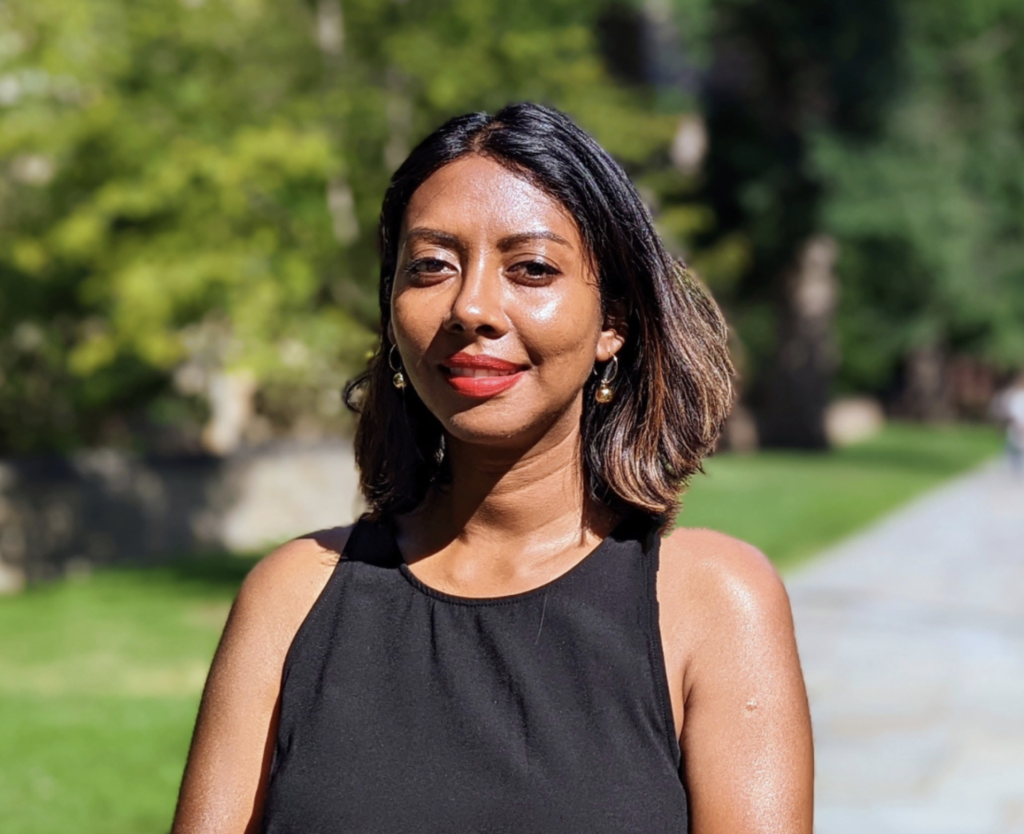
Mauritian writer Reena Usha Rungoo, 39, won the 2024 Commonwealth Prize for the Africa region. She is one of five winners chosen from 7,359 entries. The Commonwealth Short Story Prize, run by the Commonwealth Foundation, awards £2,500 GBP to regional winners and £5,000 GBP to the overall winner.
Rungoo’s story, Dite means “tea” in Creole and explores a Mauritian woman’s love of tea and its colonial history. Each tea in her collection holds a memory reflecting her life.
Rungoo, a writer, scholar, teacher, speaker, and mother, uses fiction to address colonial violence and resistance. She is an assistant professor at Harvard University.
Jennifer Nansubuga Makumbi chaired the 2024 judges, with Keletso Mopai, O Thiam Chin, Shashi Bhat, Richard Georges, and Melissa Lucashenko. Other winners include Sanjana Thakur (Asia), Julie Bouchard (Canada and Europe), Portia Subran (Caribbean), and Pip Robertson (Pacific).
Makumbi praised the winners, noting the power of short stories. Granta will publish the winners’ stories before the overall winner is announced on June 26.
The five regional winners’ stories will be published online by the literary magazine Granta ahead of the announcement of the overall winner. The overall winner will be announced in an online ceremony on Wednesday, June 26, 2024.
National Museum of African Art Celebrates 60 Years with Rare Benin Bronzes Exhibition
The Smithsonian National Museum of African Art will celebrate its 60th anniversary featuring nine Benin Bronzes from the royal court of Benin in a special exhibition opening June 3, 2024. These artworks, originally taken during the 1897 British raid on Benin City, have been returned to Nigeria.
The exhibit will showcase rare 15th-century copper alloy trophy heads, architectural plaques, figural sculptures, ivory tusks, and also a figure of a queen mother’s attendant.
Initially, the museum’s collection included 39 Benin artworks, of which 29 were identified as stolen during the 1897 raid. Ownership was transferred to Nigeria in October 2022, with a loan agreement allowing the artworks to remain in Washington, D.C.
Most of these artworks are dated, based on their style, from the late 15th or early 16th century through the late 19th century. The Benin bronzes had entered the museum’s collection through purchase, transfer, donation and bequest over the years.
John K. Lapiana, interim director, said, “Sixty years ago, the U.S. Civil Rights Movement inspired the founding of the National Museum of African Art by diplomat and collector Warren Robbins. Now, we present this exhibition in collaboration with Nigerian colleagues.”
The Kingdom of Benin is renowned for its royal arts in copper, ivory, terracotta, wood, iron, and coral beads. Most of which were looted during the 1897 raid. The museum is dedicated to Africa’s arts, with a collection spanning 13,000 artworks over 1,000 years.
The Smithsonian’s National Museum of African Art is solely dedicated to the collection, conservation, study, and exhibition of Africa’s arts across time and media. Its collection spans over 13,000 artworks from more than 1,000 years of African history.
Compiled by Roli O’tsemaye
